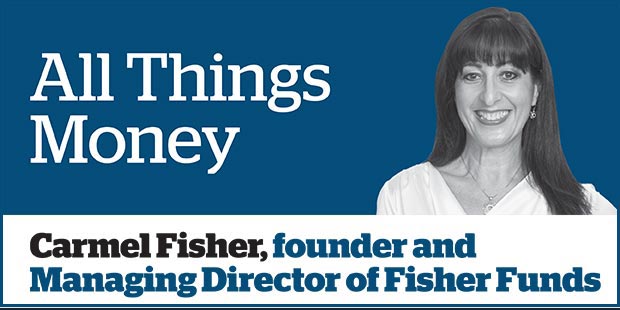Because I am a female in business, I am occasionally questioned when the topics of gender pay gaps and female inequality arise.
Surely I will have experienced discrimination as a woman in a male-oriented industry? If not, what special qualities do I possess enabling me to foot it with the men in the finance sector? I am approached less often these days because my answers have typically been at odds with the stories journalists were hoping to run.
I know women are missing from the lists of highest-paid executives. I know the percentage of female directors and CEOs in public listed companies is miniscule. I have heard of lower remuneration for women than males in identical roles though thankfully it has been a long time since those tales emerged.
There is no straightforward or catch-all solution and it's not always clear a real problem exists. I suspect many women don't give a toss about equality when it comes to top pay and top roles. There are a lot of other issues they are more passionate about - and taking time out to raise a family does impact a woman's career path, explaining at least some of the pay and career disparity.
Rather than thinking about a generic issue that may never be solved, I have instead found my interest piqued by an issue that apparently plagues women in their careers: other women.
There is even a name for it: the Queen Bee phenomenon.
The Wall Street Journal defined it: "The female boss who not only has zero interest in fostering careers of women who aim to follow in her footsteps but who might even actively attempt to cut them off at the pass."
That's meatier than the typical excuses for our lack of progress, like monthly cycles and a propensity for crying!
Most of the evidence supporting the Queen Bee idea is anecdotal - bitchy bosses and female colleagues who spread rumours and otherwise undermine other women to make themselves look good. A favourite movie of mine, The Devil Wears Prada, illustrates this vividly (though the good girl wins in the end).
Some studies have looked beyond business circles to women in power who become other women's worst enemies.
A recent example is Carly Fiorina, a female Republican candidate who hopes to beat Hillary Clinton to become America's first woman president. When Fiorina was hired as Hewlett-Packard's CEO, she was the first woman to take control of a Fortune 100 company. She didn't use her feminine traits in her business career - she was seen as aggressive and famously shook up the sales staff with the mandate "shape up or ship out".
Fiorina seems determined to stop Clinton pursuing her feminist interests. She has been quoted as saying her nomination means Hillary "won't be able to play the gender card or talk about a war on women without a challenge." Her policies are far from woman-friendly - she is against raising the minimum wage and opposes equal pay amendments. Definitely a Queen Bee.
Other political examples include Margaret Thatcher who appointed just one woman to her cabinet during her three terms and apparently hated feminism. The first and only female president of Pakistan, Benazir Bhutto, did nothing to overturn anti-women legislation and was anti-abortion and anti-sex education. Indira Gandhi was not much better, voting against low income housing and instituting a programme of forced sterilisation.
Perhaps we women can be our own worst enemies. Though I suspect we wouldn't have to look very far to find men who have been just as dastardly to their male counterparts.
Men are just as good at outmanoeuvring adversaries and pursuing their own goals ahead of others'. There are just a lot more of them in business and political circles so their catfights (or do men have dogfights?) don't stand out as much.
Maybe the answer (to removing hurdles faced by others climbing the ladder behind us) is to just be nice.

